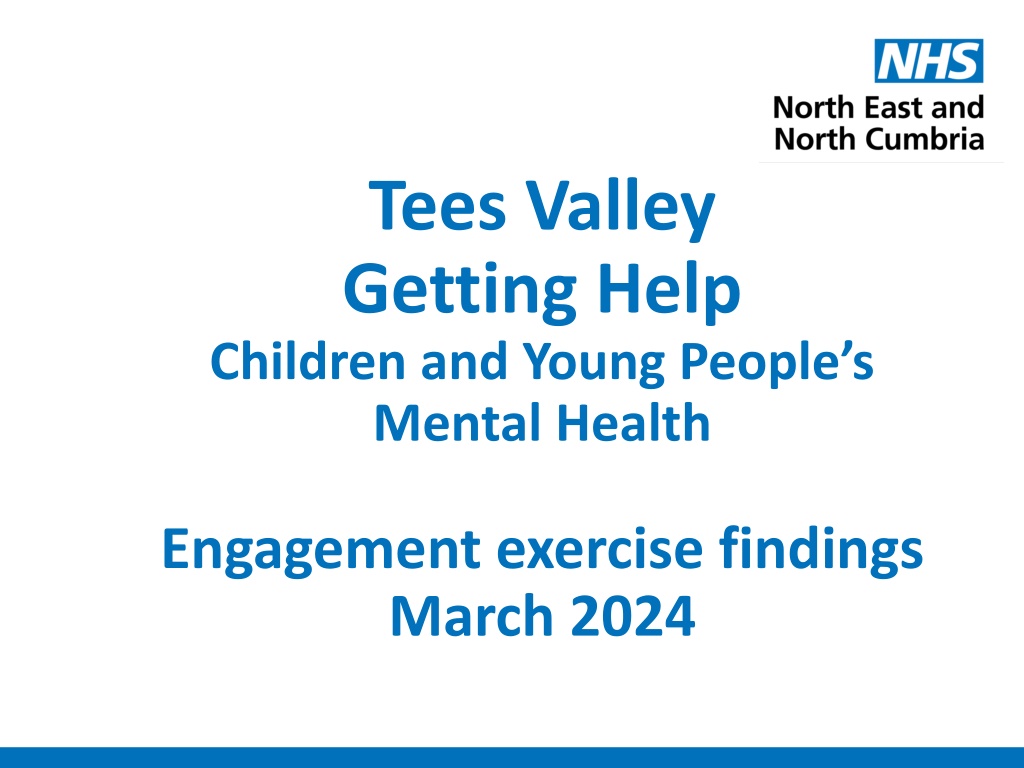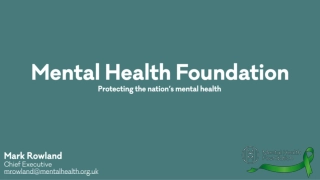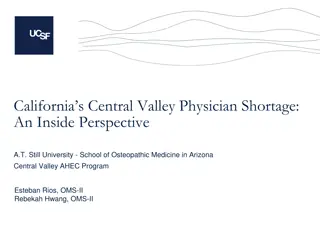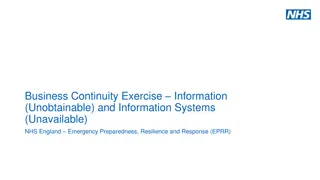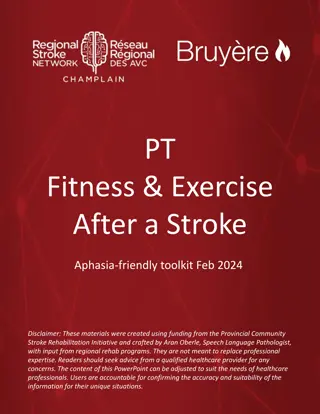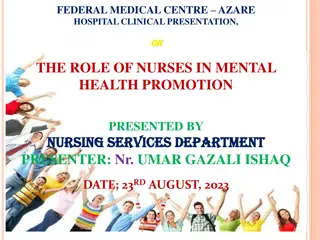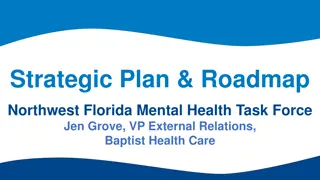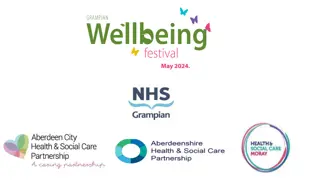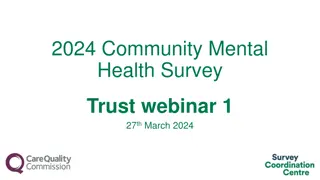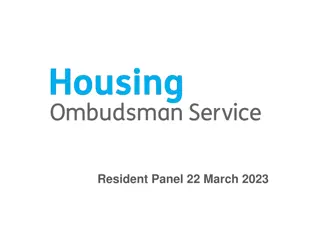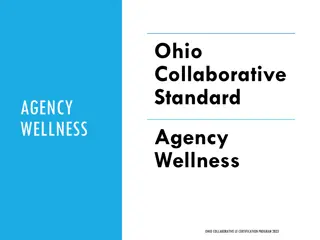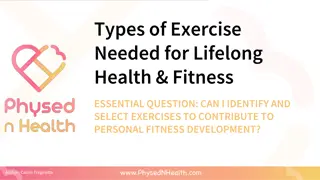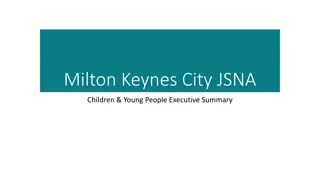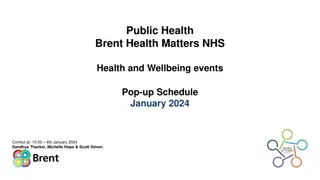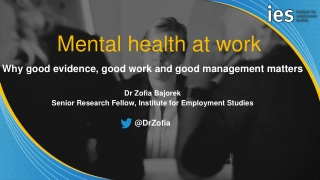Tees Valley Mental Health Engagement Exercise Findings - March 2024
Significant transformations have been made to provide earlier mental health support for children and young people (CYP) across Tees Valley. Stakeholder engagement revealed positive aspects such as collaboration, quality provision, and online support, but also highlighted areas for improvement including strengthening trauma-informed practice and enhancing mental health training for professionals. There is a call for increased focus on early intervention and sustainable funding to better support CYP's mental health needs.
Download Presentation
Please find below an Image/Link to download the presentation.
The content on the website is provided AS IS for your information and personal use only. It may not be sold, licensed, or shared on other websites without obtaining consent from the author. Download presentation by click this link. If you encounter any issues during the download, it is possible that the publisher has removed the file from their server.
Presentation Transcript
Tees Valley Getting Help Children and Young People s Mental Health Engagement exercise findings March 2024
Background/Methodology Over the last couple of years, significant transformations have been made to providing earlier mental health support for CYP across Tees Valley, particularly by increasing the opportunity to access and receive earlier support and evidence-based interventions in schools. However, to achieve NENC ICB local vision of delivering sustainable services, improving access and outcomes and reducing health inequalities across Tees Valley engagement work undertaken sought to provide a review of the mental health and wellbeing support that is in place, what is important for CYP and parents / carers when accessing From October Feb 24 - telephone stakeholder interviews, on-line surveys with existing staff, 11-25 year olds, parent carers, facilitated discussion with young people, shared widely. Resulted in 472 individual engagement and feedback (24% professionals 43% children, young people, 33% parent carers)
Key Stakeholders What s working well? Collaboration/Integration of Providers in and out of schools Redesign of Neurodevelopmental Pathway Mental Health Support Teams in Schools Single point of access(s) getting right support early Good quality provision On-line support Lots of data LA therapies and ICB joint commissioned work PROCLAIM and Rockpool and Therapies offer
Staff and stakeholders What is working well? Top Themes Quality of Service and Effectiveness of Interventions The range of support offered including trauma, CBT, parent/family support, emotional resilience nurses in particular the low-intensity models within getting help teams and mental health support teams in schools Collaborative ways of working, multi-agency huddles including third sector and health that supports better referral process and quicker access to treatment right support at right times There was recognition of the improvements made over the last couple of years, however, there needs to be a greater focus on early intervention and more support within educational settings and an increase in funding that is sustainable to better support CYP.
Key Stakeholders What could be improved? Strengthening skills around Trauma Informed practice Mental Health Training for all professionals Clear, simple information to access and communications transitions Support for children whilst waiting I-Thrive and needs-led approach with links to other graduated responses and a focus on prevention including utilisation of youth provision for example, particularly when children in social care Understanding data to support commissioning and the wider school offers for mental health and wellbeing Sustainable funding Risk taking behaviour support
Staff and stakeholders What could be better? Sustainable services for earlier support Services that can provide a range of support meets the wide range of children s needs mental health, trauma, attachment A reduction in waiting times to access the support Greater consistency and uniformity across Tees Valley A better understanding of how services work, what interventions are available and how they can be accessed Ideal world? Immediate access and shorter waiting times Greater focus on early help Better understanding of support available with a variety of treatment options to meet need Collaborative working with all partners Support would be more accessible to children, young people, parents and carers
Children & Young People what makes you worried, sad or anxious? Family Life Getting things wrong and failure Uncertainty change or something new Feeling alone/isolated Specific fears and unfamiliar environments Being bullied, threatened or hurt Getting into trouble or being shouted at Schoolwork tests exams feeling under pressure Sex Personal trauma or abuse Being excluded not listened too or understood Social anxiety and worrying what others say Body image Intimidated unsafe Worries about the future
Young People aged 11-25 Who would young people speak to for support? Top 4 friend or a parent/carer teacher/someone else in school. a doctor/other health professional Not sure what they would do What s important to you? Top 5 Knowing that anything I discuss is confidential / private (90%) To not feel embarrassed or judged (88%) Knowing I will be seen by the right service / person for my needs (85%) To be able to see the same person and not have to retell my story (85%) To be involved in decisions (80%) What are your biggest worries? the negative thoughts I have about myself my worries about the future my family or homelife
Young People aged 11-25 small cohort 55% sought support for their mental health (22 CYP) 12 respondents accessed a mental health service (86%) five had accessed support at school / college (32%) four accessed support at their GP (23%) three accessed support at a hospital (14%) Of those who sought support for their mental health: 64% described the care they received as poor or fair 36% described their care they received as good, very good or excellent It helped me understand my feelings a bit better and to know I m not the only one struggling Suggestions for what could have been better: More/longer sessions Better support and understanding
Children and Young People on-line mental health support The majority of children and young people said they would want an on-line provision as a good starting point Many children and young people said they were unlikely/very unlikely to use this for mental health support Prefer face-to-face sessions (or speak to family member) so relationships could be built and so they could see who they are talking to. Concerns about feeling more judged . Concerns about trust and reliability of practitioners if they couldn t see them but also about their personal information being shared Prefer to receive an immediate response Not having access to or being able to read emails/reading difficulties Concerned whether this type of support would help On-Line Life not being real
Children and Young People what would support you to have better mental health? Ensuring a greater focus on mental health within schools School staff better equipped to deal with mental health needs of children and young people Access to calm and private spaces. Promotion of wellbeing strategies Schools following through on what they say they will do for example, bullying policies. Across all schools to help reduce stigma Access to better mental health support outside Services being well promoted and readily available for everyone designed with children Services not over promising and under delivering Having the option to choose where they will receive support Confidential and private Feeling prepared when receiving support for the first time Better understanding of what s available Children and young people want to have the option to choose what is best for them and where they receive support.
What our Parents and Carers told us 156 parents and carers 35% were primary carers of disabled children, young adults or adults 36% have a disability or long-term illness/health condition A further 23% had a mental health difficulty
Parents and Carers majority of children receiving/received support Parent carers of children with more extensive needs (70%) however had utilised a range of provision Referral process - 56% said poor/fair and 42% said good/very good/excellent Waiting time for support - 66% said poor/fair 30% said good/very good/excellent Support received during waiting 74% said poor/fair and 17% said good/very good/excellent Quality of Support 61% said poor/fair and 32% said good/very good/excellent Staff understanding 51% said poor/fair and 46% said good/very good/excellent Communication with parent carers 58% said fair/poor and 39% good/very good/excellent Communication with other services (eg school/GP s) poor/fair 58% and 24% good/very good/excellent What was good? 78% had positive comments initial assessment and treatment was quick, child received support, staff part of the positive experience 36% of respondents said that the referral process could be improved 33% of respondents said that they would like to feel listened to and/or better understood 17% mentioned that waiting times could be shorter
Parents and Carers - Summary Waiting times for support and support received was inadequate Parent Carers lack confidence that their child or young person will receive the right support when needed and want to see changes to the referral process with shorter waiting times. Getting children the right type of support when needed was felt to be the most important factor It s important that parent s carers and their children feel listened to and understood Parent carers want their child and young person s care to be tailored to their needs Similarly, from children, parents want their child to have more options for different types of therapy with support to be available in different locations (not just clinical settings) and flexibility in its length and duration A small proportion felt that improvements were needed in the support for children with neurodiversity.
Overall Key Conclusions Improved funding with more sustainable commissioning and contracting needed To be consistent and equitable across the whole of the Tees Valley early help and mental health support in every school and from an earlier age To meet the needs of the children and young people across Tees Valley including those with increasing complexities and for those where there are gaps in provision trauma attachment positive behaviour support Embedding I-Thrive as a needs-led approach Streamlined pathways with a more comprehensive assessment earlier on and triage across partners to prevent children being moved from one service to another unnecessarily To address waiting times and provide interim support to those waiting for treatment To be well promoted, easily accessible and simple to navigate To continue to focus on collaborative, partnership working To have the option of where to be supported, whether that is an in-school or out of school offer Detailed recommendations and the full engagement report can be found here: [AWAITING NENC WEBSITE LINK]
